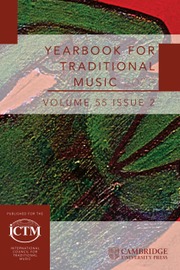Article contents
Serenading the Ancestors: Chinese Qingming Festival in Honolulu
Published online by Cambridge University Press: 07 March 2019
Extract
Qingming—literally pure and brightness—is an annual Chinese ritual during which families honour their ancestors by visiting their graves. This practice was observed in China as well as in overseas Chinese communities. Described by a local writer as one of the important “family traditions” in Hawai'i, this annual ritual has been observed by local Chinese since their arrival in the nineteenth century (Clarke 1994). Every year during Qingming, all Chinese associations on the islands will sponsor ceremonies either at the Chinese cemetery or the association clubhouse to pay respect to their ancestors. This traditional ceremony, similar to other kinds of annual ethnic celebrations in Hawai'i, such as the Korean chusok harvest festival, Chinese New Year and Mid-Autumn festivals, Portuguese Holy Ghost festival, and the Japanese and Okinawan obon festival, has been regarded as a high profile event of the Chinese community by local residents. Despite their origin as traditions brought to Hawai'i by immigrants, this type of ethnic family traditions has emerged as an integral part of the local culturescape, reflecting the multiethnic make-up of Hawaiian society since the plantation days at the turn of the twentieth century (ibid.).
- Type
- Articles
- Information
- Copyright
- Copyright © 2004 by the International Council for Traditional Music
Footnotes
An earlier version of this paper was presented at the 37th ICTM World Conference in Fuzhou, China. I wish to thank Jenny Chow for sharing her material and Fred Blake, Heather Diamond, Jonathan Stock, and Su Zheng for their insights and comments. I would also like to thank the guest editors, Don Niles and Tsao Penyeh, and the anonymous readers for their constructive comments on the paper.
References
References Cited
- 2
- Cited by


